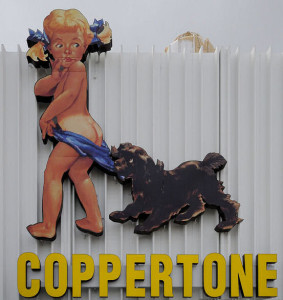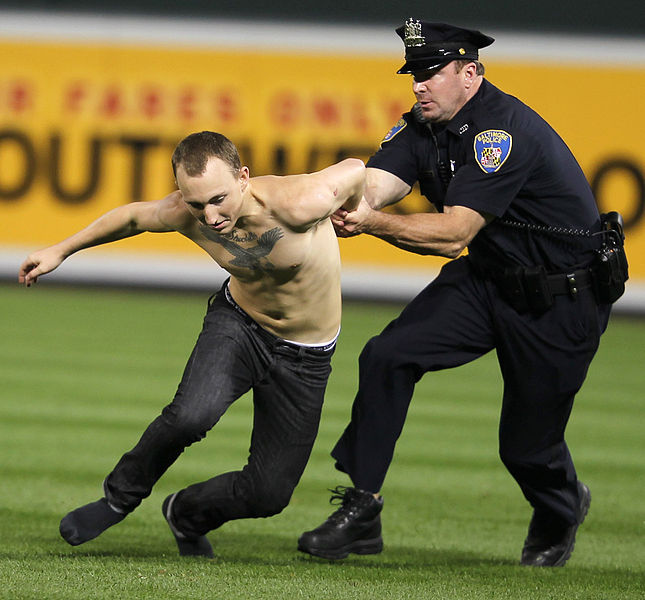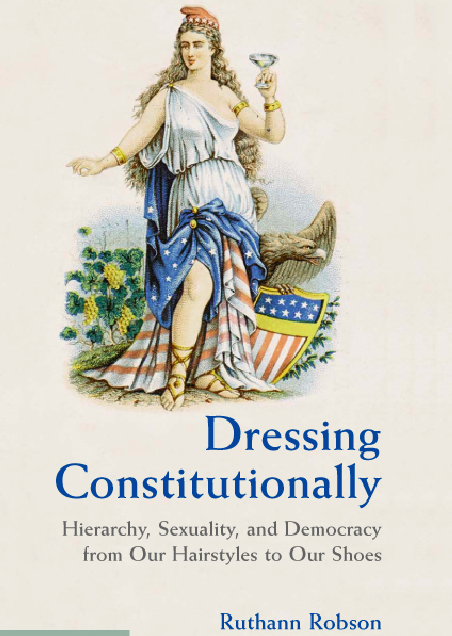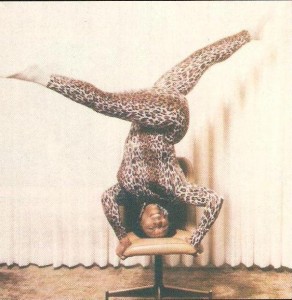Can a municipality mandate a dress code? The short answer is generally no, at least not a constitutional one. Although there are certainly laws prohibiting public exposure or indecency, the government cannot stretch the concept of “indecency” to include respectable or tasteful.
The proposal to be considered by Wildwood, a coastal town in New Jersey famous for its boardwalk, reportedly seeks to maintain its “family friendly” atmosphere by mandating shirts (seemingly on men and women) after 8pm, and prohibiting lowered waistbands – – – a fashion often known as “sagging” – – – by declaring that the waist band of shorts, swim-trunks, pants and/or skirts shall not be worn more than 3 inches below the wearer’s waist – interpreted to mean at a level below the crest of the ilium, so as to expose either skin or garment underneath – at any time.
 A similar ordinance from Riviera Beach, Florida, passed by voter referendum, was quickly found unconstitutional by a judge as violating the constitutional liberty interests of those wearing the fashion. In Flint, Michigan, a law enforcement memo instructing officers to arrest those who were “sagging” prompted a response from the ACLU and a speedy resolution.
A similar ordinance from Riviera Beach, Florida, passed by voter referendum, was quickly found unconstitutional by a judge as violating the constitutional liberty interests of those wearing the fashion. In Flint, Michigan, a law enforcement memo instructing officers to arrest those who were “sagging” prompted a response from the ACLU and a speedy resolution.
Requiring shirts, especially for men, is similarly unconstitutional. In the 1980s, an ordinance from Florida’s Palm Beach that mandated shirts was challenged by a male attorney who had been jogging topless. In DeWeese v. Town of Palm Beach, 812 F.2d 1365 (11th Cir. 1987), a federal appellate court found that the town did not have a legitimate interest in regulating “the dress of its citizens at large,” as encompassed by its stated purposes of maintaining the quality of life and unique character of Palm Beach. Further, “prohibiting male joggers from appearing in public without a shirt” was irrational, and any justification was beyond the court’s “imagination.”
Such findings of unconstitutionality are not new. In a 1937 case, People v. O’Gorman, 274 N.Y. 284, 8 N.E.2d 862 (1937), New York’s highest court struck down a Yonkers ordinance that prohibited any person over the age of 16 from appearing in public “in a bathing costume” or “in other than customary street attire.” The defendants included a woman who wore “white sandals, no stockings, yellow short pants and a colored halter, with a yellow jacket over it and no hat” and a man who “had on white sneakers, white anklets, short socks, yellow trunks, short pants, a blue polo shirt, brown and white belt, no hat.” Maybe they looked “foolish” to their contemporaries, but as the court declared, the “Constitution still leaves some opportunity for people to be foolish if they so desire.”
What we wear on public streets – – – including boardwalks – – – cannot be legislated unless it crosses the line of exposure of traditional “private parts” such as the genitals, or in most cases, women’s breasts. A boardwalk is not a school or even a privately owned restaurant, places in which more leeway is allowed, although there are still constraints. Otherwise, state laws could mandate everyone wear green headbands on Thursdays or Congress might even be able to proclaim seersucker Thursdays in the summer. The boardwalk will just have to remain a dress-code free zone.
 Are toddlers on the Jersey Shore at risk of arrest for public nudity? Trentonian columnist Jeff Edelstein thinks so. As he tells the story, Edelstein and his wife, after a visit to the beach at Spring Lake, New Jersey, removed the bathing suits of their two- and four-year-old children at the public shower. A “beach supervisor” called the police, who let them leave with a verbal warning.
Are toddlers on the Jersey Shore at risk of arrest for public nudity? Trentonian columnist Jeff Edelstein thinks so. As he tells the story, Edelstein and his wife, after a visit to the beach at Spring Lake, New Jersey, removed the bathing suits of their two- and four-year-old children at the public shower. A “beach supervisor” called the police, who let them leave with a verbal warning. 





